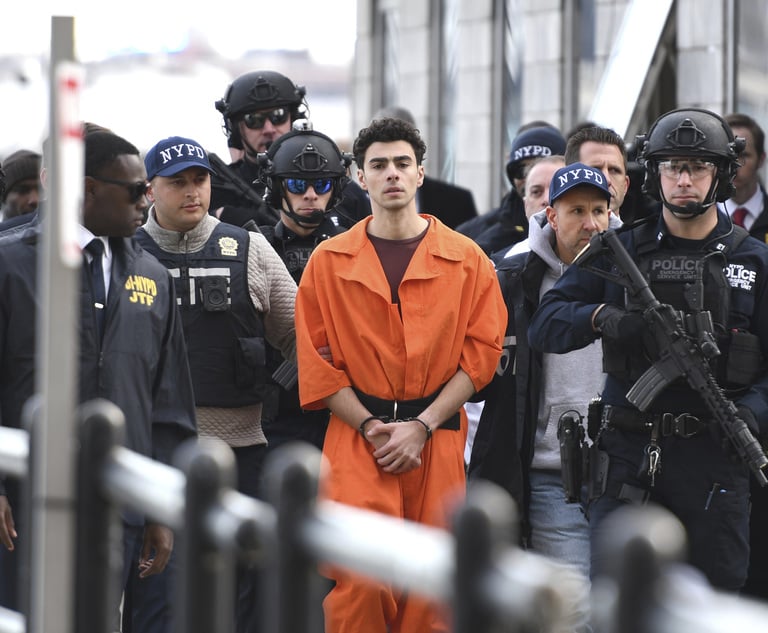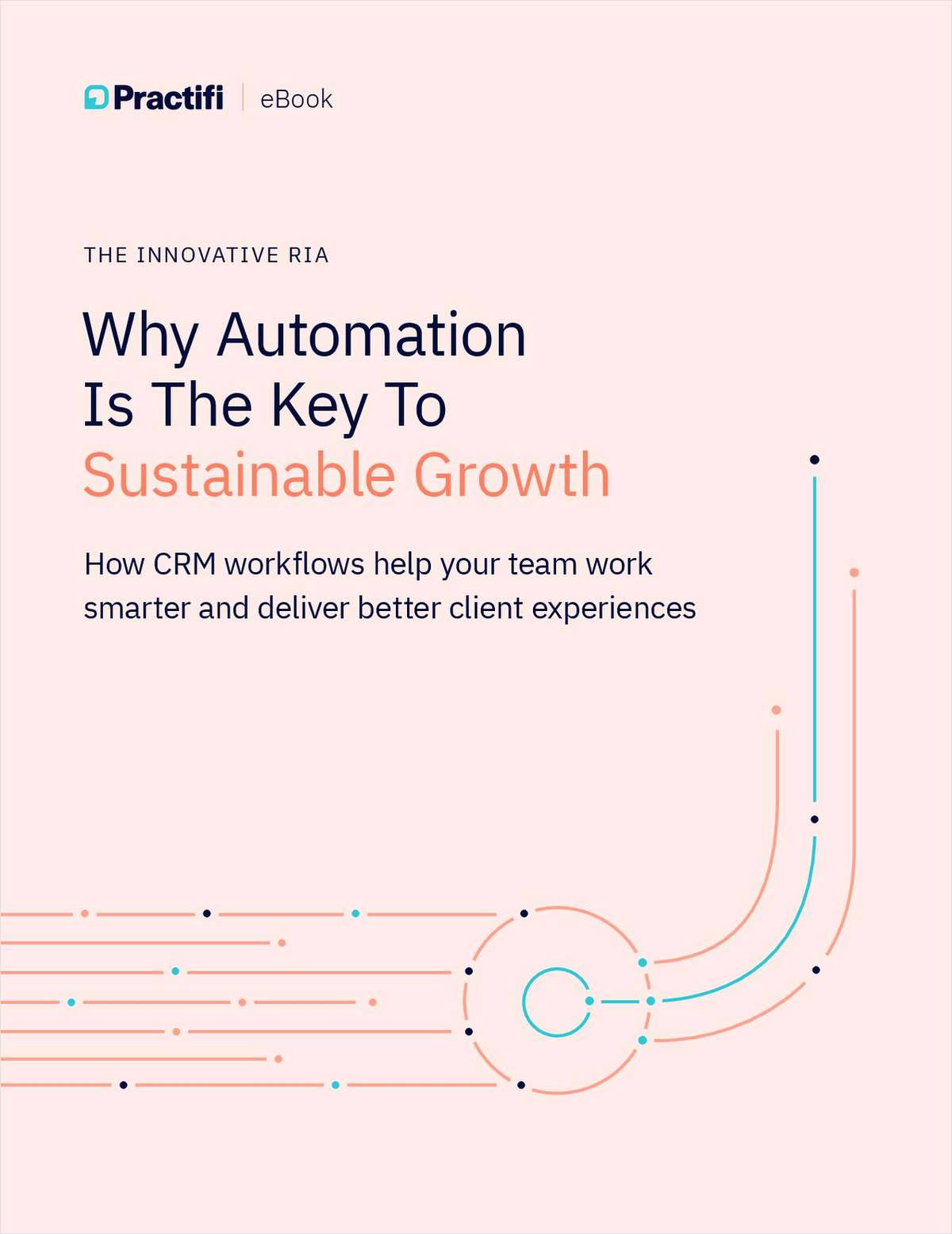'Stark' Yale Law Study Findings Help Drive Parole Reform
The Samuel Jacobs Criminal Justice Clinic (CJC) at Yale Law School has released its final report on the parole revocation process in Connecticut, following…
October 24, 2017 at 03:32 PM
7 minute read
 Yale Law School
Yale Law School
The Samuel Jacobs Criminal Justice Clinic (CJC) at Yale Law School has released its final report on the parole revocation process in Connecticut, following an initial release of numbers alarming enough for the state to make immediate reforms.
Asked by Gov. Dannel Malloy to look into the state's parole process as part of his “Second Chance Society” initiative, the CJC began a month-in-time study for November 2015 of individuals who appeared for parole revocation hearings. The final report was issued in September.
CJC Director Fiona Doherty, an associate law professor at Yale, said CJC staff members and volunteers covered every parole revocation hearing that took place in Connecticut in that month, and that the results of the study were “stark and illuminating” to them. For all 49 individuals seen, parole had been revoked, and all had been re-incarcerated. At least 94 percent of parolees—some who did not meet competency standards—had waived their rights to preliminary hearings, and none had appeared with appointed counsel, the study found.
“Given the fact that there was a 100-percent revocation rate, the fact that 100 percent of the people got a prison sanction, not a single person appeared with counsel and that the parolees as a whole were indigent, that was startling to us,” Doherty said in an interview. “So we really just reported this and said, 'This is what we found.'”
In January 2016, the CJC presented findings at the Connecticut State Capitol to members of the governor's staff, the Board of Pardons and Paroles (BOPP), the Department of Correction and the Office of Policy and Management. Following that presentation, the BOPP immediately began changing its practices for preliminary hearings.
The CJC administered a follow-up survey to parolees, revealing that 79 percent had lost jobs as a consequence of parole revocation, and that most parolees did not understand the rights they had waived during the revocation process.
Connecticut Undersecretary for Criminal Justice Policy and Planning Mike Lawlor said the state has been open to learning from the results of the Yale study to improve the state's criminal justice system and reduce crime in general. “This is not the first time we've worked with Yale Law School resulting in major changes to our criminal justice system,” he said in an interview. “Some major changes to solitary confinement were made four to five years ago. It's a very small number of inmates now with administrative segregation status.”
Lawlor said Malloy's Second Chance Society is the force behind doing these studies and focusing on reform. “The governor is very clear about this. We want to work with people. We don't want to wait for them to sue us. The goal, ultimately, is to have less crime going forward, and that's what's happening.”
The undersecretary added that “there's no question” that Connecticut has become one of the most successful states in the country for lowering crime. “It's always hard to explain this stuff in a really comprehensive way, but what I continuously say to people is our No. 1 goal is reducing crime. Our No. 2 goal is reducing spending and our No. 3 goal is restoring confidence in the criminal justice system.”
That includes, among other issues, supporting victims' rights; connecting with African-American and Latino residents who may feel the system has not been fair to them; and addressing wrongful convictions, corruption and police brutality. “All of those things undermine people's confidence in the criminal justice system, so people don't cooperate with the cops—and jurors won't vote to convict,” Lawlor said.
Lawlor commented that the criminal justice system often gets blamed for problems that begin elsewhere. “There's a tendency of folks, when they have a complicated problem, to dump on the criminal justice system. You have drugs, mental illness—I understand how that comes to pass—but I can tell you for sure, the system is not designed to deal with those problems. The last place—and the most expensive place—to do it is in a prison, police station or courthouse, and that's pretty clear.”
Nonetheless, statistics show that the United States has quadrupled its prison population since 1980, despite a long-term trend of decreasing crime. With less than 5 percent of the world's population, the U.S. holds nearly a quarter of the world's prisoners, at an annual cost of more than $74 billion, according to the U.S. Department of Justice's Bureau of Justice.
A report released last month by DOJ, meanwhile, links problems with municipal court systems to “unchecked discretion or stringent requirements to impose fines or fees [which] have led to discrimination and inequitable access to justice, when not exercised in accordance with the protections afforded under the Due Process and Equal Protection Clauses of the United States Constitution.” Commissioned in the wake of the police shooting of Michael Brown in Ferguson, Missouri, in 2014, “Targeted Fines and Fees Against Communities of Color” started with an analysis of Ferguson's municipal court system and expanded into a nationwide study with recommendations for reform. “In addition,” the report states, “if a jurisdiction's primary goal is to generate revenue rather than promote public safety, it can create an incentive for law enforcement to issue as many citations as possible, contrary to the pursuit of justice.”
In Connecticut, the Yale Law report's findings are illustrated with anecdotes from actual case studies, including 22-year-old “Mr. A,” a parolee with cognitive and developmental disabilities whose sponsor had lost his home and could no longer house him. “At the revocation hearing, Mr. A. struggled to communicate basic facts and details, and his responses indicated that he did not understand questions posed by the Board. For instance, Mr. A repeatedly said that he was scheduled to leave prison on March 12, 2012—even though the hearing was taking place in November 2015. Mr. A was ordered held until the end of his sentence. He could have benefited greatly from legal representation.”
A volunteer who assisted in the Yale study, third-year law student Theo Torres, said in a statement that he and others “were deeply unsettled by the parole revocation hearings we observed in November 2015. People were waiving their rights virtually across the board.”
But Torres noted that it was encouraging to see Connecticut leaders focusing on reforms. “It's been a special opportunity to see our efforts begin to push the system forward,” Torres said. “We look forward to continuing our work with the Board of Pardons and Paroles to implement the reforms proposed in this report.”
In March 2016, the BOPP began implementing reforms to Connecticut's parole revocation practices in response to the Yale study, starting with preliminary hearings in all cases involving parolees accused of technical violations. Follow-up interviews were completed by the CJC with 34 of the 49 parolees observed, with respondents relating their experiences, including their understanding of the procedures; their knowledge of their rights; their decisions to waive or invoke rights; and the personal consequences of revocation. Some were released.
Doherty said that, despite the unsettling nature of some of the information unearthed in the CJC report, the process has yielded good dialogue, along with a desire to make positive changes. “I think what's actually quite extraordinary in Connecticut has been the willingness to ask a law school clinic to do this, and hold up a mirror and say, 'This is what we see. These are the problems, and now that we know about them we have to take steps to address them.”
This content has been archived. It is available through our partners, LexisNexis® and Bloomberg Law.
To view this content, please continue to their sites.
Not a Lexis Subscriber?
Subscribe Now
Not a Bloomberg Law Subscriber?
Subscribe Now
NOT FOR REPRINT
© 2025 ALM Global, LLC, All Rights Reserved. Request academic re-use from www.copyright.com. All other uses, submit a request to [email protected]. For more information visit Asset & Logo Licensing.
You Might Like
View All
Luigi Mangione Charged in Federal Court for Stalking, Murder and Firearms Offenses

Suspected Shooter of UnitedHealthcare CEO Is Charged With Murder in New York. Now What?


Trump Election-Interference Prosecution Appears on Course to Wind Down
4 minute readTrending Stories
Who Got The Work
Michael G. Bongiorno, Andrew Scott Dulberg and Elizabeth E. Driscoll from Wilmer Cutler Pickering Hale and Dorr have stepped in to represent Symbotic Inc., an A.I.-enabled technology platform that focuses on increasing supply chain efficiency, and other defendants in a pending shareholder derivative lawsuit. The case, filed Oct. 2 in Massachusetts District Court by the Brown Law Firm on behalf of Stephen Austen, accuses certain officers and directors of misleading investors in regard to Symbotic's potential for margin growth by failing to disclose that the company was not equipped to timely deploy its systems or manage expenses through project delays. The case, assigned to U.S. District Judge Nathaniel M. Gorton, is 1:24-cv-12522, Austen v. Cohen et al.
Who Got The Work
Edmund Polubinski and Marie Killmond of Davis Polk & Wardwell have entered appearances for data platform software development company MongoDB and other defendants in a pending shareholder derivative lawsuit. The action, filed Oct. 7 in New York Southern District Court by the Brown Law Firm, accuses the company's directors and/or officers of falsely expressing confidence in the company’s restructuring of its sales incentive plan and downplaying the severity of decreases in its upfront commitments. The case is 1:24-cv-07594, Roy v. Ittycheria et al.
Who Got The Work
Amy O. Bruchs and Kurt F. Ellison of Michael Best & Friedrich have entered appearances for Epic Systems Corp. in a pending employment discrimination lawsuit. The suit was filed Sept. 7 in Wisconsin Western District Court by Levine Eisberner LLC and Siri & Glimstad on behalf of a project manager who claims that he was wrongfully terminated after applying for a religious exemption to the defendant's COVID-19 vaccine mandate. The case, assigned to U.S. Magistrate Judge Anita Marie Boor, is 3:24-cv-00630, Secker, Nathan v. Epic Systems Corporation.
Who Got The Work
David X. Sullivan, Thomas J. Finn and Gregory A. Hall from McCarter & English have entered appearances for Sunrun Installation Services in a pending civil rights lawsuit. The complaint was filed Sept. 4 in Connecticut District Court by attorney Robert M. Berke on behalf of former employee George Edward Steins, who was arrested and charged with employing an unregistered home improvement salesperson. The complaint alleges that had Sunrun informed the Connecticut Department of Consumer Protection that the plaintiff's employment had ended in 2017 and that he no longer held Sunrun's home improvement contractor license, he would not have been hit with charges, which were dismissed in May 2024. The case, assigned to U.S. District Judge Jeffrey A. Meyer, is 3:24-cv-01423, Steins v. Sunrun, Inc. et al.
Who Got The Work
Greenberg Traurig shareholder Joshua L. Raskin has entered an appearance for boohoo.com UK Ltd. in a pending patent infringement lawsuit. The suit, filed Sept. 3 in Texas Eastern District Court by Rozier Hardt McDonough on behalf of Alto Dynamics, asserts five patents related to an online shopping platform. The case, assigned to U.S. District Judge Rodney Gilstrap, is 2:24-cv-00719, Alto Dynamics, LLC v. boohoo.com UK Limited.
Featured Firms
Law Offices of Gary Martin Hays & Associates, P.C.
(470) 294-1674
Law Offices of Mark E. Salomone
(857) 444-6468
Smith & Hassler
(713) 739-1250










